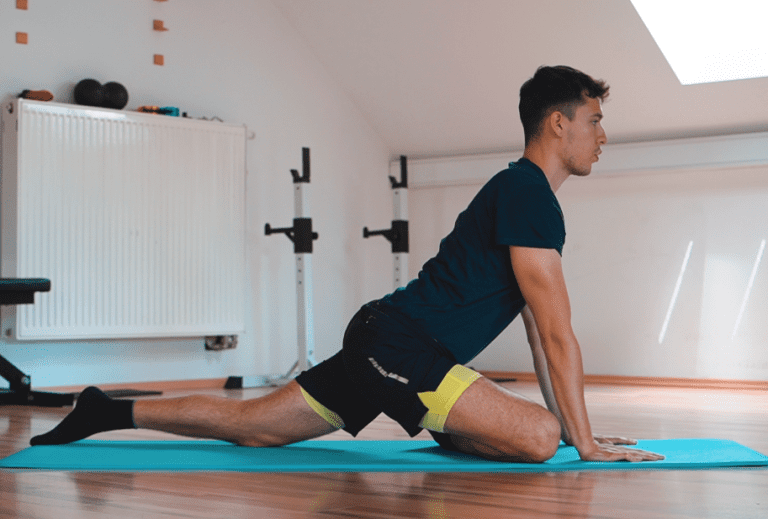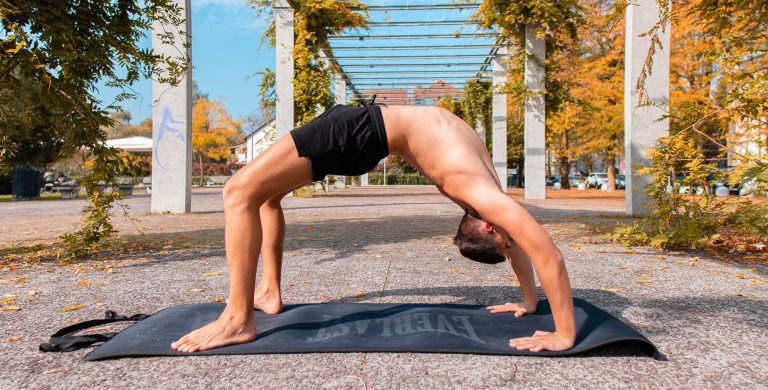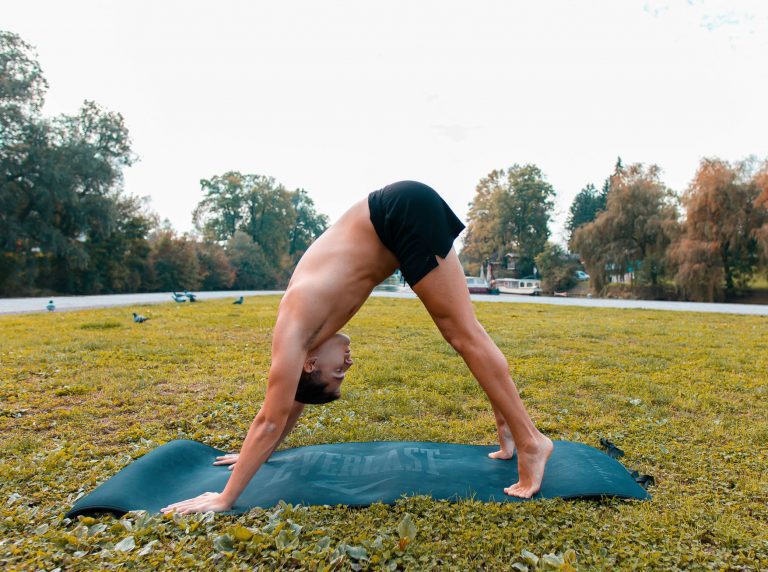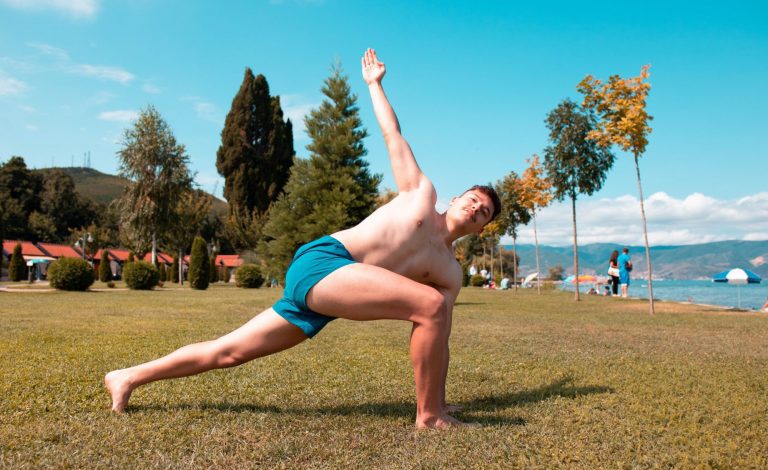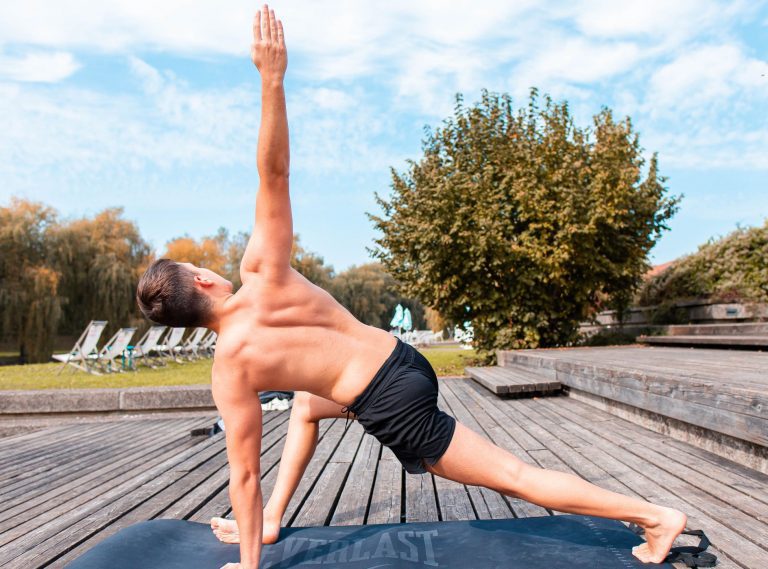Yoga Benefits For The Immune System | 25 Studies
Immune System Function
There are many yoga benefits for the immune system, which may directly or indirectly improve its function. The immune system is a complex system, a network of different tissues, hormones, organs, and cells which can work together to ensure proper health and protect us from bacteria or viruses that can cause infection or disease.
The immune system works by recognizing antigens, detrimental substances, and pathogens, and it responds to them, destroying or neutralizing them. Leukocytes are the main immune supporter cells that originate from our bone marrow, the white blood cells.
When we have antigens in our body, leukocytes migrate into the lymphatic system and work to fight antigens. When we have a bacterial infection we can see that the level of leukocytes in the blood is higher, which is a normal immune response.
Every bacteria have its own specific defender and the whole system is pretty complex by its nature, working through the blood. Leukocytes are screening our tissues and blood and when they find threatening substances or pathogens, they attack.
Phagocytes, Lymphocytes, T-cells, B-cells
Our immune response can be sent through phagocytes which trigger an immune response by sending macrophages and dendritic cells in the blood to destroy antigens by consuming them. Then they communicate to the secondary cell group – lymphocytes. This then makes T-cells search for infected cells to kill them all, while B-cells use that information to produce antibodies that can kill invading cells.
The goal of your immune system is to ensure a healthy balanced body, but in the meantime of fighting a foreign substance or bacteria, you will most likely feel sick or have a raise in body temperature which is normal. The main purpose is to fight the origin of our infection or disease, so we can ensure a proper environment for becoming healthy again.
The best thing about B and T-cells is their memorizing effect, to remember antigens and produce antibodies immediately.
Factors that Affect Immunity
Many factors can influence our immune system and its ability to fight pathogens and bacteria or neutralize harmful substances. Even though some of them might be genetic in nature, we as humans have a tremendous influence on our immune system through our way of eating, exercising, and sleeping.
Genetics, sex and age may play a huge role in our immune system functioning, as we already know that some people are more prone to infections or certain diseases that originate way back from their family.
Aside from genetics, age is a crucial factor too, since older people have a weaker immune systems on average and can, because of the slower regeneration cycles they seem to have, have a harder time withstanding the disease.
Here are a couple of factors that can significantly influence our immune system function. Some of those can be manipulated and improved through the practice of Yoga and in the section below, we will see how.
Stress
Sleep
Inflammation
Diet
Fasting
Cold Exposure
Stress has many detrimental effects on our immune system, reducing its ability to adequately adapt and fight back. Through reduced NK cell activity, lymphocyte populations, and proliferation and antibody production stress hormones like catecholamine and glucocorticoids may negatively impact our immunity. (1)
Sleep is one of the most important processes when it comes to a strong immune system. Sleep deprivation is known to lead to a serious weakening of immunity which is logical since sleep is the major process of regeneration and nourishment. High-quality sleep is associated with a stronger immune system and it affects anti-inflammatory cytokines and T-cells activity. (2)
Inflammation is a natural process of healing, which assist our immune system. However, chronic inflammation is negative and can weaken our immunity over time. When a foreign agent is fought or the body loses control over its bacteria or viruses, inflammation is the natural process that communicates with our immune system. It comes after a hardworking session, a hard-thinking session, and any emotional or stressful activity, it is a call for regeneration. (3)
Diet plays a major role in immunity. In fact, what we eat can either support our immune function or make it weaker. Specific nutrients can assist our immune system to function optimally. Nutrients can influence our gut-brain axis and our mood, but they are also closely related to our immunity. Vitamins like D, E, A, C and B vitamins, along with minerals such as selenium, iron, and zinc play a major role in immune support. (4)
Fasting is one of the most popular self-preservation techniques that seem to work. It has been proven to reduce circulation IGF-1 levels and PKA activity which can improve self-renewal and regeneration. Fasting can alter our immune system by providing autophagy and reducing inflammation, plus it can increase growth hormone which can speed up regeneration. (5)
Cold Exposure is one of the most popular bio hacks in modern times. Known as the Wim Hof method which integrates intense breath work, movement, and cold exposure, it was shown to stimulate the immune system and reduce inflammation. Temperature changes like heat-shock therapy and cold exposure can increase stress resilience and potentially, by reducing inflammation prevent many diseases.
key point
If yoga can influence these factors, such as sleep, inflammation, digestion, and stress positively than it can indirectly improve or strengthen our immune system.
Yoga Effects on Immunity
Understanding all the major factors that can influence Immunity is crucial in order to understand how yoga may influence and strengthen our immune system. Research shows that yoga may strengthen our immunity not directly, but rather deviously.
It can affect inflammation, sleep, and even digestion and energy levels, which altogether can bring up a stronger immune system.
Here is a list of Evidence-Based Benefits of Yoga on Immune System Support
- Positive effects on cell-mediated immunity, biological aging, and markers of inflammation
- Promotes immune system support and may reduce symptoms of asthma and stress
- Improves circulation and posture, and allows energy to travel
- Reinforcing our respiratory system, improving blood flow, and stress-hormone reduction
- It affects levels of IgA antibodies, salivary cortisol, leukocyte, and many other measures associated with the immune system
- Improves resilience, autonomic changes, and cellular immunity impairment in times of stress
- Lowers stress hormone levels, Cortisol
- May reduce IL-6, TNF-α, and CRP, the main markers of inflammation
- Helps with Neurotransmitter secretion, the ones that control the circadian rhythm
- Can activate the parasympathetic system, allowing us to relax
- May prevent diseases and reduce symptoms
- Improvement of physical and psychological symptoms in cancer patients
- Positive impact on cancer symptoms severity, anxiety, nausea, and vomiting
- May improve natural killer cell counts and radiation-induced DNA damage
- Improvement in depression and visuospatial memory, as well as verbal memory performance
- Improved well-being, arthritic knee symptoms, and physical function
- Reduced incidence of atherosclerosis, regression of coronary obstructions, and reduction in triglycerides and LDL cholesterol
- Reduced symptoms of diabetes, or its severity
- May reduce fasting blood glucose
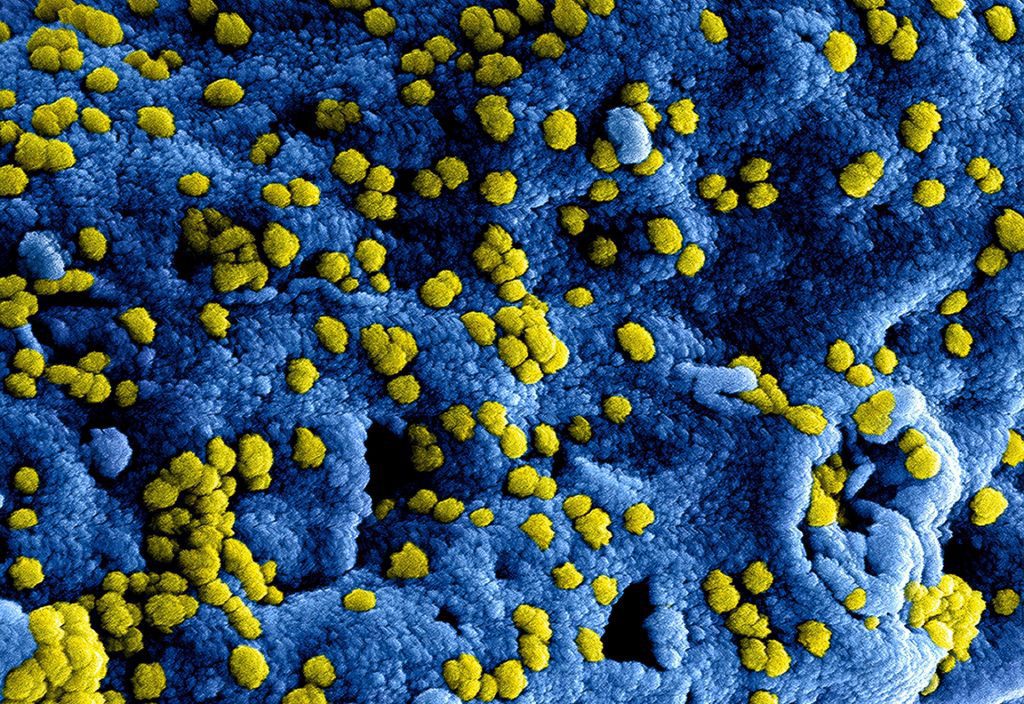
Yoga on Immunity
Yoga is an ancient practice known to improve many aspects of life. Research shows that yoga or meditation and mindfulness can positively affect both inflammation and the immune system. In fact, potential positive effects of yoga are expected on cell-mediated immunity, biological aging, and markers of inflammation. (6)
- Other disciplines similar to yoga like Tai Chi and Chi-gong are widely practiced in America too. Systematic reviews show that mind-body therapies have been effective in supporting the immune system, reducing asthma, stress, and blood pressure, and improving blood flow and posture. (7)
- Other systematic review of 15 control trials also shows a positive pattern of yoga in the reduction of inflammation markers, which suggests yoga is a complementary intervention for a population that is at risk of inflammation-originating diseases. (8)
Some of the ways yoga can help with immune function are associated with the nervous system balancing, between sympathetic and parasympathetic. Reinforcing our respiratory system, improving blood flow, and stress-hormone reduction. Improved circulation may be present in the lymphatic system which can allow us to get rid of toxins, detrimental substances, and excess fluids, but can also play a major role in the production of immune cells.
A combination of meditation, breath work (pranayama), and yoga were shown to positively affect our immune system in duration as low as 4 weeks. It increased IgA antibodies, salivary cortisol, leukocyte, and many other measures associated with the immune system. This shows us that yoga can be an alternative therapy for people with chronic or acute diseases. (9)
Stress Response
Yoga was shown to lower stress hormones which can positively affect immune function, so here are a couple of studies referring to this topic:
Yoga was investigated in 60 first-year MBBS students which were assigned to yoga or a control group. The yoga group practiced 35 minutes daily for 12 weeks. This brought up significant changes in stress response in comparison to the non-yoga group which had higher indicators of physiological stress. This study draws a conclusion that with yoga we can resist autonomic changes and cellular immunity impairment in times of stress. (10) Plus it has been shown to reduce psycho-physiological stress in college students. (11) Yoga was also shown to lower cortisol levels, one of the main stress-related hormones. (12)
Inflammation Reduction
There is a theory that inflammation is the major cause of many diseases. Chronic inflammation may lead to serious illness and can be the origin of diseases such as cardiovascular diseases, obesity, diabetes, arthritis, and neurodegeneration. (13) Chronic inflammation may slow down our ability to regenerate and make us more susceptible to diseases.
Stress, inflammatory and endocrine response were screened during a restorative hatha yoga session with novice and expert yogis. Yoga had different effects on IL-6, an inflammatory marker, and CRP too. Experts were more resilient and could sustain more stress-related changes, as the previous inflammation markers were rated higher in novice practitioners. (14)
Yoga was also proven to help lower other inflammation markers such as CRP, IL-6, and TNF-α. This study has proven that yoga is effective in reducing metabolic risk factors and inflammation. (15)
Sleep Quality
Sleep is very important for optimal immunity. As the main regeneration process in the body, it is crucial for supporting regeneration, growth hormone secretion, and immune support. Neurotransmitters that control circadian rhythm also play a major role in immune system function. During nocturnal sleep, anti-inflammatory actions of cortisol and catecholamines are at their lowest levels. Most of the benefits that come from sleep were associated with slow-ware sleep, high growth hormones, and low cortisol and catecholamines were part of it. (16)
Yoga is beneficial for sleep and this is how it can strengthen our immune system. In fact, yoga was shown to help with sleep and stress in 55% to 85% of the practitioners in a survey, respectively. Breath work can activate the parasympathetic system, allow us to relax and get into the rest and digest state, turning off our panic centers too. (17)
Potential Disease Prevention
Yoga, as a combination of meditation, breath work, and physical exercise may have the potential to reduce the symptoms or prevent the development of some diseases.
This is because of its anti-inflammatory and circulation-inducing properties mainly, but also due to improved hormonal balance, sleep, physical fitness, and self-awareness.
Disclaimer: The content on this website is for informational purposes only. It is NOT intended to substitute professional medical advice. Always seek advice from your doctor or other qualified healthcare professionals regarding any health-related questions. Before starting any diet, supplementation, lifestyle program or exercise protocol, consult with your physician.
Here are some of the main illnesses that may be improved or prevented through yoga. Keep in mind even though this is evidence-based, make sure to do your own research.
Cancer
Alzheimer’s
Arthritis
Diabetes
Cardiovascular Disease
- Yoga has been shown to positively affect physical and psychological symptoms, including immunity markers and quality of life in more than 10,000 patients from 20 countries. This may present the potential for yoga uses in conventional cancer care. (18)
- Yoga also had a positive impact on cancer symptoms severity, anxiety, nausea, and vomiting, plus a good effect on natural killer cell counts and radiation-induced DNA damage. It is pretty important to say that this is not the cure but may prevent or ease symptoms if trained under guidance of a certified yoga therapist, specified in this area. (19)
- It has been long known that reducing inflammation in the brain, improving sleep, and intake of neuro-stimulants may reduce neurodegeneration. Yoga is not just training the brain in our neuromuscular conditioning, but has also been researched and proven to positively affect neurodegeneration.
- Research has shown that yoga training improved depression and visuospatial memory, as well as verbal memory performance. This showed that yoga may be as effective as memory enhancement training in improving functional connectivity and verbal memory. (20) Since yoga can help with neurotransmitter secretion, it may potentially reverse the effects of Alzheimer’s disease. (21)
- An overactive immune system is problematic with arthritis since it causes excessive inflammation in the joints. This is associated with joint pain, stiffness, and swelling.
- Aside from the research and potential anti-inflammatory effects, it is widely known that yoga can improve blood flow, and nourish our joints, but also work surrounding muscles that enhance mobility and joint strength.
- In 13 clinical trials reviewed with 1557 patients with knee arthritis, yoga improved wellbeing, and arthritic knee symptoms and promoted physical function. (22)
- Yoga, as physical exercise, can help us lose weight. If so, it may reduce diabetes symptoms or severity. Visceral fat is what causes inflammation, and yoga can reduce it, plus make us slimmer. (24) Lifestyle modifications such as a healthy diet, active lifestyle, and stress reduction technique, all of which are part of a yogic lifestyle, are seen to inversely correlate to diabetes.
- It was also shown that yoga can reduce fasting blood glucose significantly and may help in preventing or controlling type II diabetes. (25)
- Yoga has many positive effects when it comes to cardiovascular disease. It can lower cholesterol, improve cardiovascular endurance, and lower blood pressure.
- Yoga training is associated with reduced incidence of atherosclerosis, regression of coronary obstructions, and reduction in triglycerides and LDL cholesterol. Plus, it is suspected to help with stress, improve physical fitness and reduce physiological arousal. (23)
Research Limitations
*Studies have some limitations, important to evaluate the validity of their results. Here’s a highlight of some and NOT ALL studies (and limitation), shown in this article, for context.
- Studies with absence of adequate controls and lack of theory-based approach.
- Studies with small sample sizes and inconsistencies in baseline.
Proposes a potential effect on health, rather than specific and final.
In need of larger and more complex research to understand the field.
Studies that have tentative results, need further replication and additional research.
New field of investigation, small evidence and non-distinctive conclusions.
- Need more precise measures for specific populations.
- Study or/and source from aged data from 2005, 2008 etc.
conclusion
Yoga can be a great way to strengthen our immune system. As an exercise with the integration of breath work and meditation, this unique style can enable us to improve our immune system function with influence on secondary factors, mainly sleep, digestion and circulation. Yoga was also shown to lower inflammation markers, reduce stress hormones and improve physical fitness, all of which are related to a stronger immune system. The data shows a positive correlation between yoga and immune function, however, more research is needed to make a stronger conclusion about treatment.


